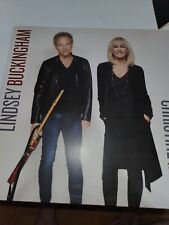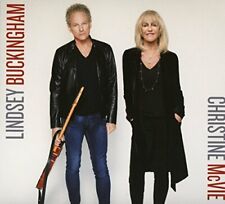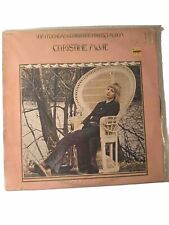| |
|
|

|
San Antonio Express-NewsOctober 5, 2003
Section: Special Section
FLEETWOOD MAC ; Critics' picks
Jim Beal Jr.Robert JohnsonJim Kiest
"English Rose" (1969, Epic/Sony)
This found Fleetwood Mac at the height of its blues/rock power. The three-guitar attack of Peter Green, Danny Kirwan and Jeremy Spencer was virtually unbeatable. The songs were original. And the album included two of Green's most enduring songs, "Black Magic Woman" and "Albatross."
--Jim Beal Jr.
"Bare Trees" (1972, Reprise)
"Rumours," "Rumours," "Rumours." Yes, it's the best-selling Fleetwood Mac album, but it's not even the best Lindsey Buckingham/Stevie Nicks-led Mac album - that honor goes to their debut, 1975's "Fleetwood Mac."
The band's best pop-rock album remains "Bare Trees," which featured guitarist Danny Kirwan and completed the shift away from blues that began with the brightly colored "Kiln House" in 1970.
By the early '70s, Mac was a band in transition. Sometimes it seems that the band was a magnet for unstable guitarists - drug-addled Peter Green left after "Kiln House"; during a 1971 tour, Jeremy Spencer left the hotel to buy a newspaper and joined a religious cult instead. Somehow, the band regrouped around Kirwan (who came on board in 1968), new guitarist Bob Welch and keyboardist Christine McVie (who joined in 1970 after marrying bassist John McVie).
The mercurial revamped lineup wouldn't last, but the album it made was one for the ages. With five Kirwan compositions and two each from McVie and Welch (including "Sentimental Lady," which he turned into a solo hit), "Bare Trees" is a masterful mix of crunch and finesse - lush and melodic, yet powerful. The only flaw is an oddball poem, but it's tacked on at the end and easy to skip.
Unfortunately, Kirwan proved no more stable than Green and Spencer, and was fired for refusing to go on stage. This triggered the band's Dark Ages. His replacement, Bob Weston, wrecked a 1973 tour after having an affair with drummer Mick Fleetwood's wife. The tour fell apart, and manager Clifford Davis actually put a bogus Mac together to try and fill the dates. It failed, naturally. The ship wasn't righted until Buckingham and Nicks rode to the rescue in late 1974.
There's no denying that the Buckingham-Nicks Mac made some fabulous music. But comparing "Rumours" to "Bare Trees" is like comparing checkers to chess.
--Robert Johnson
"Rumours" (1977, Reprise)
On the other hand, can 19 million Fleetwood Mac fans be wrong? With Stevie Nicks and Lindsey Buckingham on board, the Mac transformed itself, once again, into the finest L.A. studio rock band, as sun-drenched and blissed-out as the Beach Boys with an undercurrent of '70s hedonism. "Fleetwood Mac" established the look and sound, and had terrific songs such as "Over My Head," "Say You Love Me" and "Landslide." But time together, and personal turmoil, made "Rumours" harder, more complex and markedly stronger.
John and Christine McVie and Buckingham and Nicks were splitting up. Christine McVie seemed either to be in denial, making beautiful love songs like "Songbird" and "You Make Loving Fun," or braving it out on "Don't Stop." Stevie and Lindsey slugged it out. She says: "Lousy lovers pick their prey." He says: "Damn your love/Damn your lies." She says: "Players only love you when they're playing." He says: "Shacking up is all you wanna do."
Despite the rancor, the studio craft and the singing are stunning. "Rumors" is like Dylan's "Blood on the Tracks" with a sedative and a glass of white wine. It's a great album.
|
|
|









![Christine McVie - Christine Mcvie (reissue) [New CD] Reissue picture](/vintage/img/g/tm8AAOSwpQxgrse5/s-l225/Christine-McVie-Christine-Mcvie-reissue-New-CD-Rei.jpg)